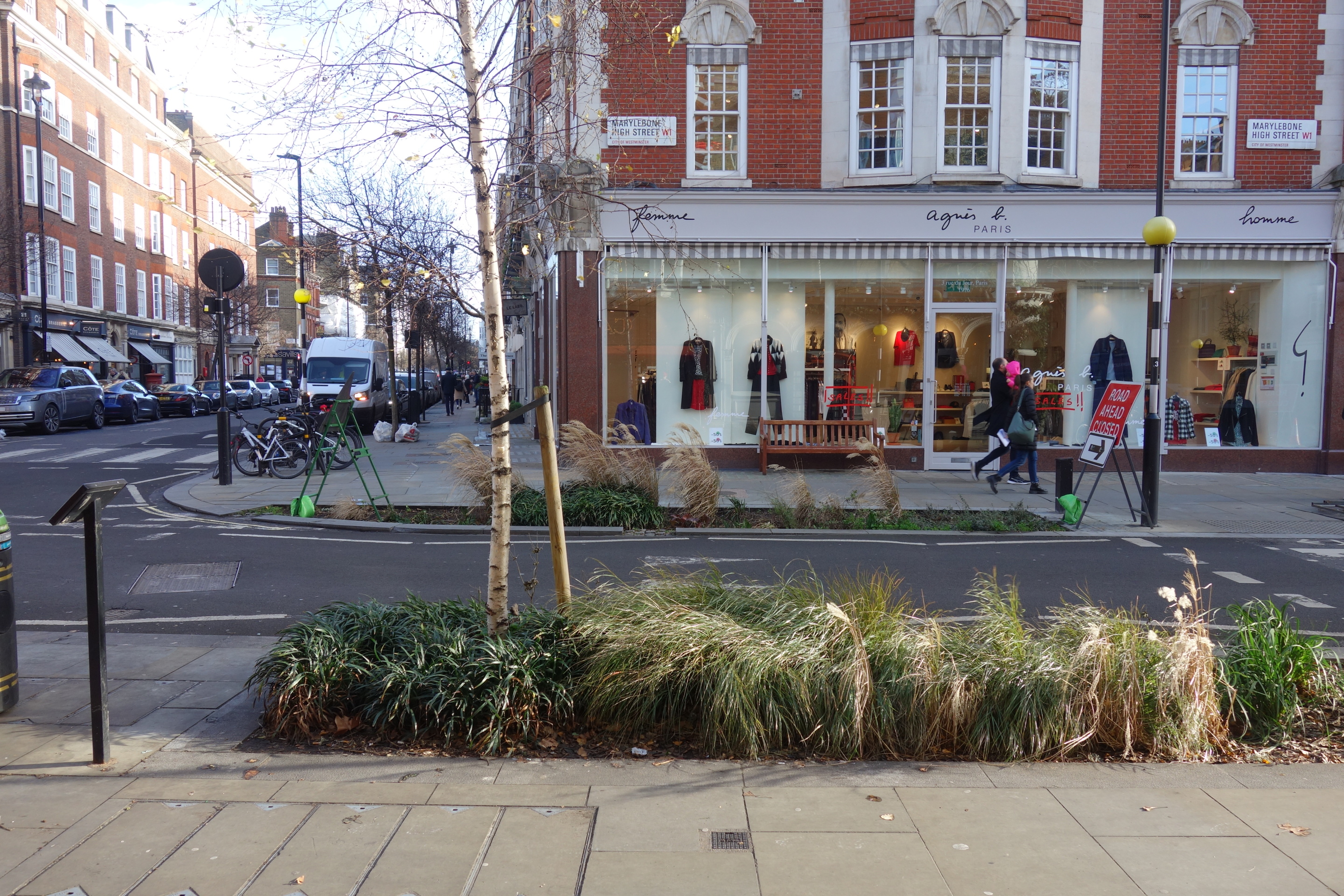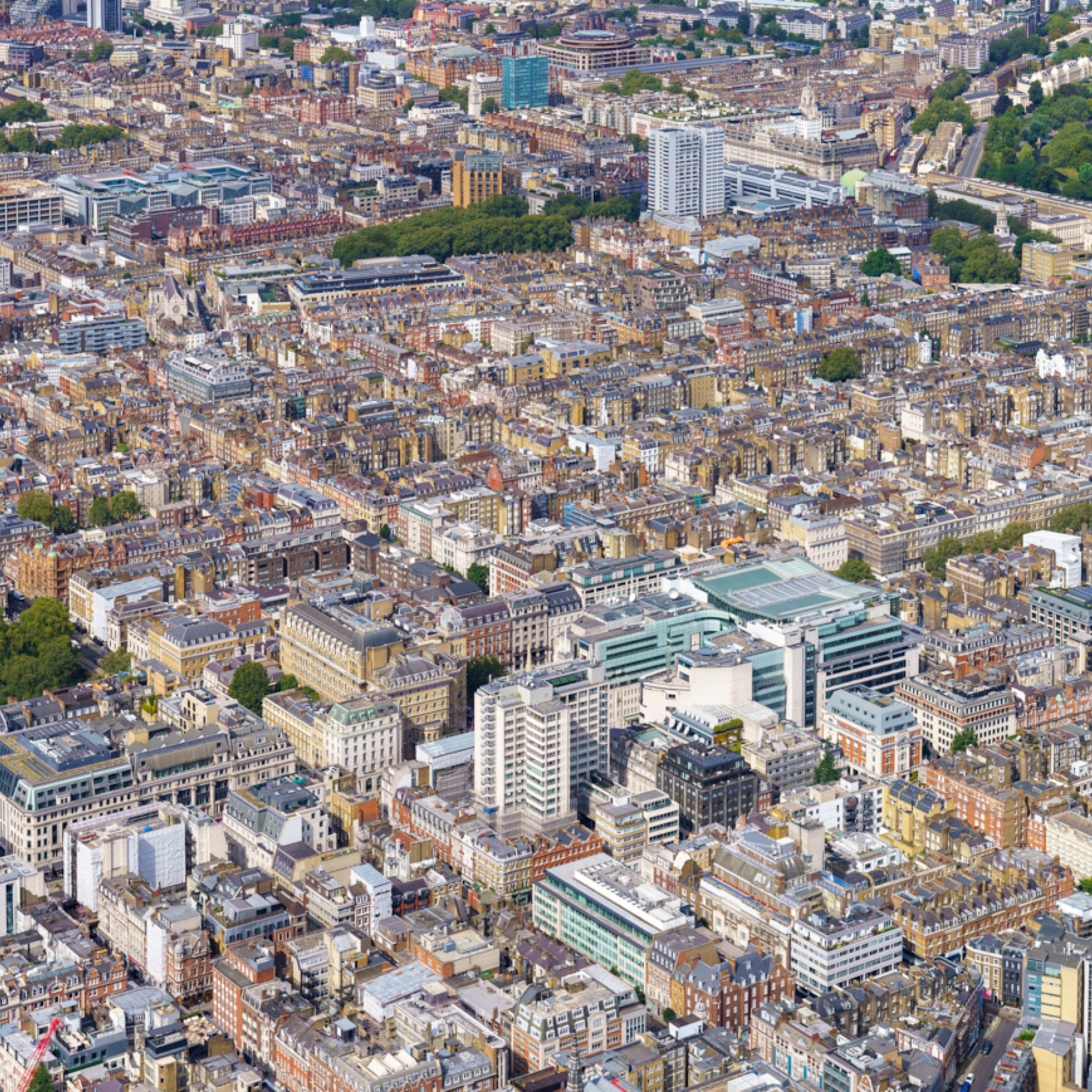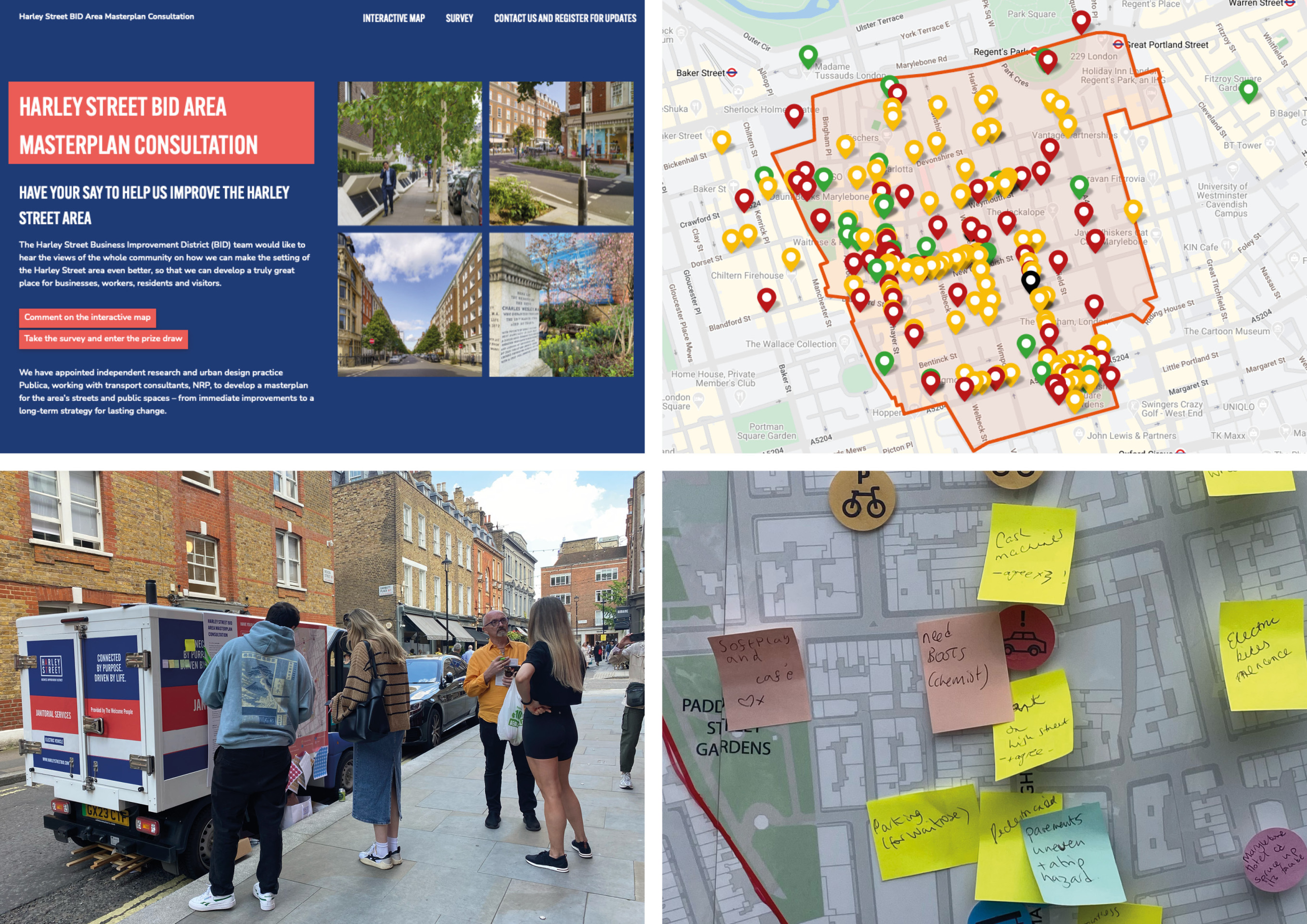Ambitions
The masterplan will seek to deliver the following ambitions developed from a deep understanding of the area, its history, the people and places that make it; as well as what has been learnt through engagement.
Welcoming
Create welcoming streets and public spaces that encourage people to dwell and enjoy the Harley Street area.
Health, accessibility and wellbeing
Celebrate the area’s healthcare connections by delivering public realm with a focus on health, accessibility and wellbeing.
Heritage
Enhance the setting of the area’s unique historical street network and many well-preserved Georgian and Victorian buildings.
Neighbourhood qualities
Enhance the neighbourhood feel of the area by making it safer and more pleasant to move around.
Trees & planting
Create green links along key pedestrian routes and connect existing green spaces through the creation of micro-habitats.
Climate resilience
Deliver interventions that mitigate the impacts of climate change, including the integration of sustainable drainage, the selection of resilient and biodiverse planting, the provision of shade and cooling, and sustainable material choices.
Masterplan proposals
- The masterplan proposes a range of project types that will be delivered over an extended period to contribute to the long-term ambition to transform the area’s street network into a green grid.
- Short-term: Contained interventions for delivery in in the next 12 months.
- Medium-term: More significant interventions for implementation between 1-2 years.
- Long-term: The gradual transformation of the area from 3+ years.
Find out more about the proposal projects and let us know your thoughts
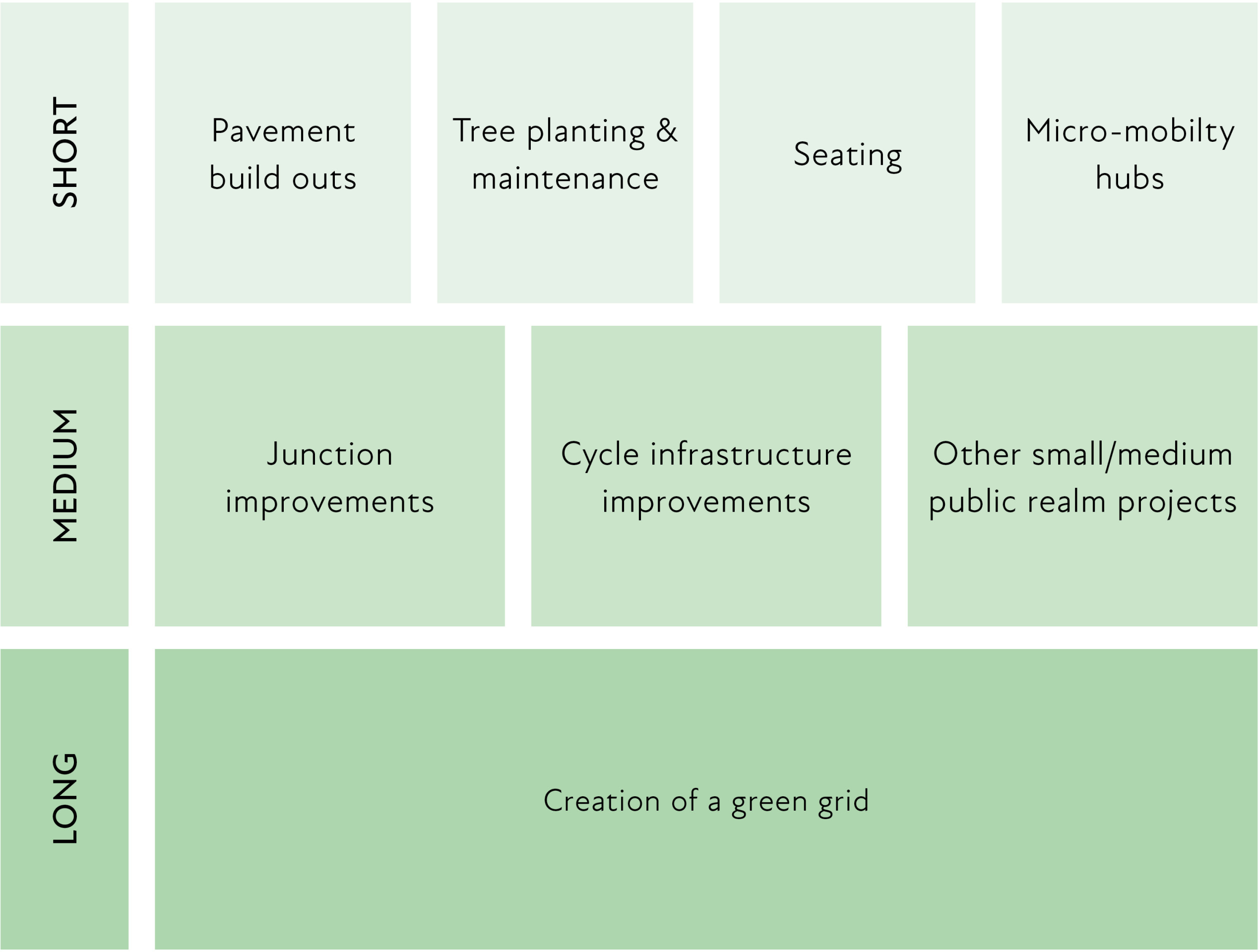
How we engaged
The masterplan vision has been developed in response to the valuable feedback we received during our stakeholder and public engagement sessions earlier this year.
Online survey
- Online survey to gather insight into the area undertaken in June 2024.
- 115 responses in total were received, including from residents, workers, business owners, and those visiting the area for medical appointments and to shop as well as students and staff of Queens College School.
Interactive map
- Interactive map to record feedback and make suggestions in parallel with the online survey.
- 141 comments were received on the map providing location-specific data.
Street pop-ups
- Street pop-ups undertaken at 4 locations across the area in May and June including at Marylebone Farmers Market, Marylebone Festival and outside Marylebone Library.
- Approx. 150 conversations took place across these sessions.
Stakeholder events
- In July 2024, two stakeholder events were held online and in person to present and receive feedback on the work undertaken to date and initial masterplan objectives.
Site Surveys and Analysis
PEOPLE, PLACE, PUBLIC REALM
An in-depth study of the area has informed the ambitions of the masterplan.
Place
- An area defined by its well-preserved heritage, with historically significant streets including Portland Place and Marylebone High Street.
- Subtle variation in architectural styles and detail are vital to understanding the character of the area.
- An established neighbourhood with a relatively low development pipeline.
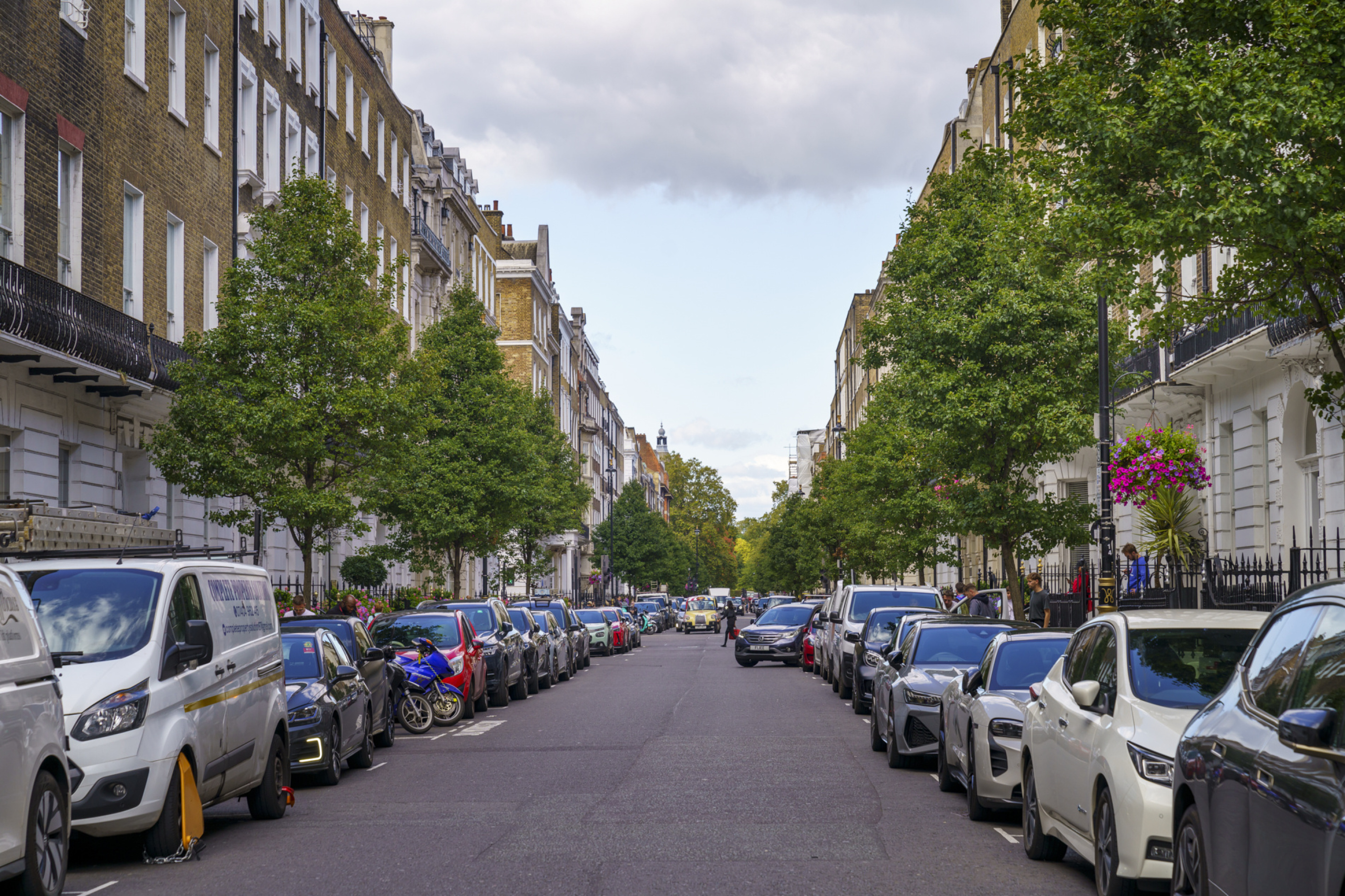
People
- A global destination for private healthcare, highlighted by its special policy area designation.
- An area where much of the activity takes place behind closed doors.
- A significant and visible residential popultaion with several schools meaning children are an active presence in the area.
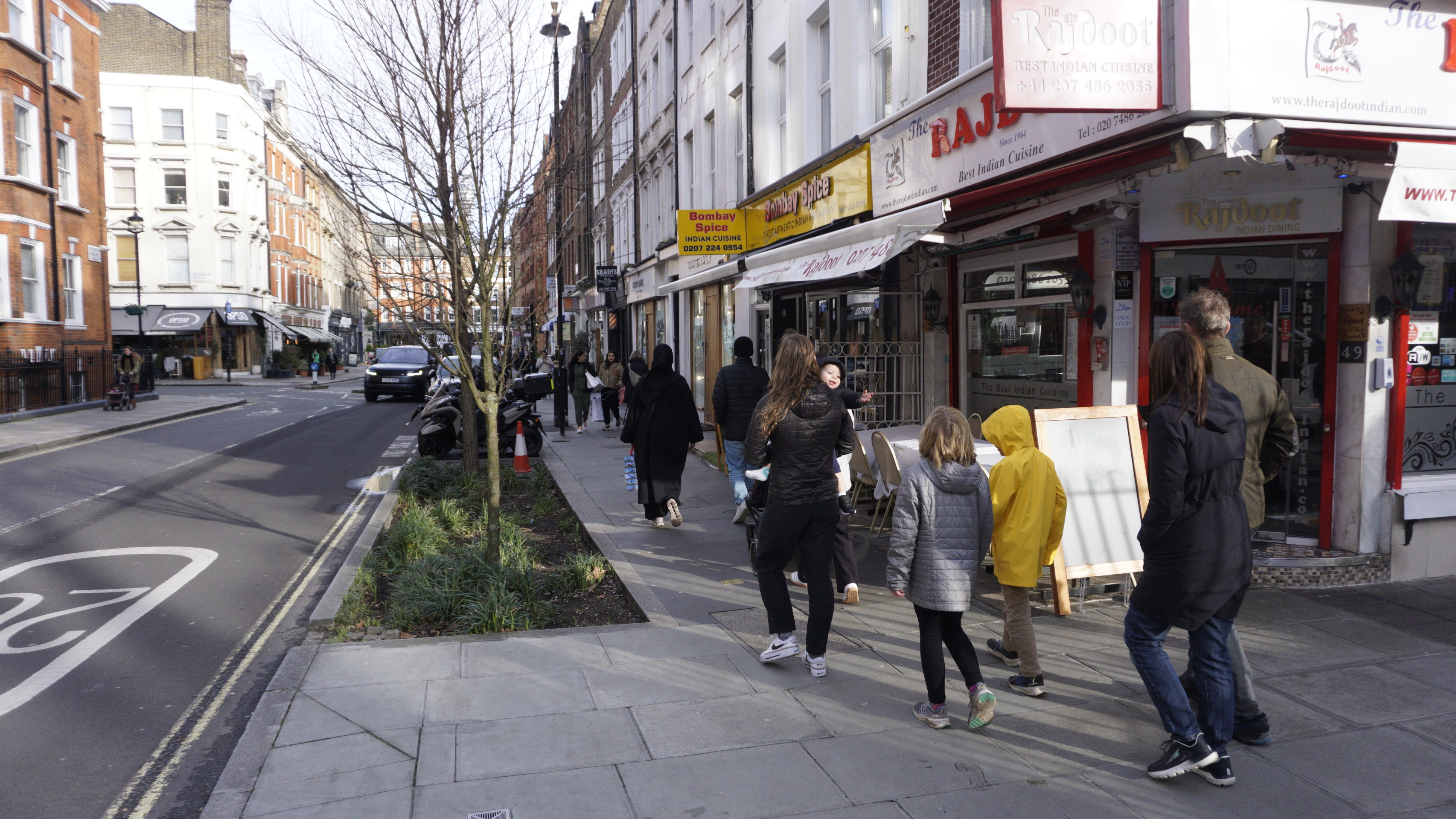
Public realm
- An area lacking high-quality public realm commensurate to its heritage and high end healthcare uses.
- A missing jigsaw piece in London's West End in terms of connectivity.
- An area with little variation in planting and greenery with a monoculture of street trees.
